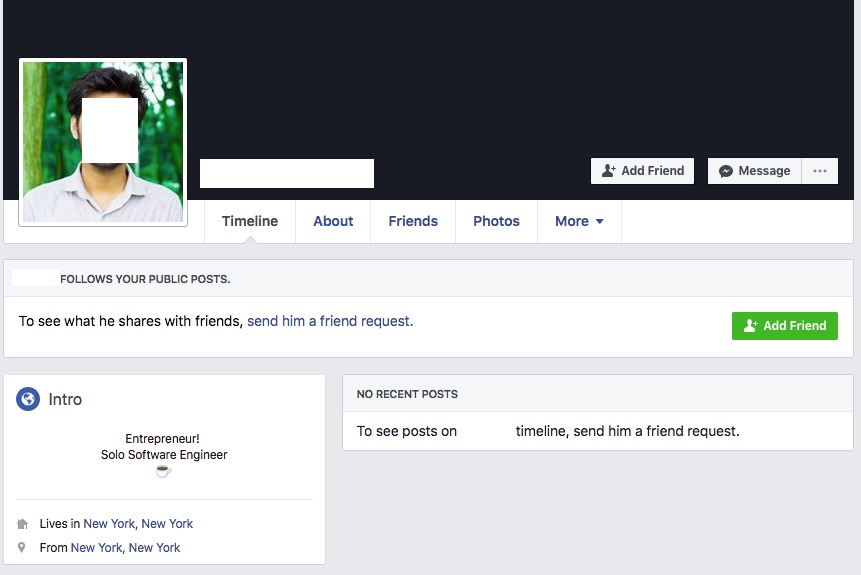The right and wrong way to volunteer to help on Facebook
 My non-profit needs to build an online community with some very specific requirements and a completely new Web site. So I posted for help on Facebook. I got some great responses and some awful ones, which revealed a lot about the business netiquette of social media. While messages on Facebook are informal, they succeed only when they’re short, clear, and invite dialogue.
My non-profit needs to build an online community with some very specific requirements and a completely new Web site. So I posted for help on Facebook. I got some great responses and some awful ones, which revealed a lot about the business netiquette of social media. While messages on Facebook are informal, they succeed only when they’re short, clear, and invite dialogue.
(By the way, I’m pretty much set for the help I need now. So there’s no need to respond to this with an offer to help.)
Facebook groups are a great place to get business
If you’re an expert, you should join Facebook groups dedicated to whatever you’re knowledgeable about. While there are plenty of other online discussion spaces, Facebook is hopping right now — and not just for politics and baby pictures. Facebook groups are way more conversational than LinkedIn and less public than Twitter, so they’re ideal for like-minded business buddies.
I, for example, hang out in some writers’ groups. If you ask for help and I have knowledge, I will provide it. This takes up very little of my time, but has established me as a knowledgeable person — it’s highly focused content marketing. And it’s helped me get lots of business from people who need help with book advice, book proposals, and book editing. Facebook leads have generated one-third of my income so far this year.
The general principle is this: everybody loves a helper, nobody loves a self-promoter. So you have to be subtle.
Based on my experience, here are my recommendations for Facebook business etiquette:
- Above all, be helpful.
- Keep answers short.
- Stay on topic. If they want help with editing, don’t post about publishing options.
- If there is an answer online, link to it. That includes your own content or others’.
- Recommend others if you’re not the best fit.
- If somebody is looking for just what you provide, volunteer to have a short conversation about it. It only takes two sentences to do that.
- Don’t be desperate. If all you end up doing is making a friend, that’s often a payoff in itself.
I think it’s great when people ask for help in these places. They’re typically asking interesting questions that generate useful discussion. Sometimes we just commiserate (“Can you believe my publisher did this?”), which is fine, too.
My request for community help was friendly but short. The best responses were, too.
I need help from a community expert. While I’m sure there are plenty of those kind of experts among my many friends and followers on Facebook (and their friends and followers), a post directly on my timeline would reach mostly the wrong kind of people. So I posted in two closed groups for community experts. Here’s what I wrote in one of them:
Hello, friends. The nonprofit of which I’m the CEO, wellnesscampaign.org, has just received a very nice grant. As a result, we’re in a position to realize my dream of building the ideal community platform for participants in small wellness groups to support each other.
I’d like to consult with an expert in community platforms to help me choose the right one. We have very specific requirements including usability by people who prefer email-only communication. Can you recommend an expert with a broad knowledge of the platform landscape? (We’ll probably go on to build it with this person’s help as well.)
This is 101 words long. I think it’s rude to make long posts in somebody else’s space. And since online community managers ought to be experts on etiquette, I didn’t want to offend them. But I tried to include the key facts: have money, nonprofit (so not that much money), and need a platform expert.
I didn’t explain who I was because that’s easy enough to look up on my profile.
I got a bunch of great responses. Here’s how they looked (names replaced with initials for confidentiality):
RM: check with [TW]
RH: One of my fav topics! I sent you a PM, in case it hits your “other” folder. Congrats on the grant!
DK: Please also report back here to how it’s going 😉
TN: Congratulations, Josh. I’ve been on the selection and implementation side of more than a few of the platforms and could help with that too. Happy to chat about your options. I’ll send you a PM.
TW: Josh would you have time to talk? (Thank you [RM] for the shout out).
Josh: I’ll be in touch shortly.
Based on this I have followed up with TW, who I knew by reputation, since RM’s recommendation carries a lot weight.
In the other community group that I posted in, the conversation looked like this:
MB: I’d highly recommend feverbee.com
RM: This is an external community? The wellness is for non-employees? We work with several NPs but are focused on internal employee community. We are vendor neutral and have knowledge of several platforms for external community.
MO: I’ve basically looked at all of them, did due diligence on them, and personally used and launched a lot of them. Happy to help!
DS: [MO] knows her stuff
JM: She sure does!
AP: Agree! [MO] would know it all 🙂 Happy to also help as I went through this selection process and building our in house tech
DA: You should talk to [FP] – he knows more about this stuff than just about anyone.
FP: Thanks for the kind words, [DA]! Josh, I would talk to the folks at CMX directly, [DS] can help identify right person probably, they recently did a white paper on all the different platforms out there and it’s fantastic http://cmxhub.com/resource/platforms – I help organizations build community, but much less focused on the tech side of things.
Based on this, I downloaded the resource book and contacted MO, who I’ll soon be speaking with.
I also got some short Facebook messages from people I’d interacted with in the past, offering expertise to help. I’ll be following up with them, too.
Here’s how not to respond to a Facebook request
I was sort of surprised at how some of these “experts” screwed this up.
One guy, who I had not been connected with previously, sent a 739-word Facebook message. It started like this:
Morning Josh,
Saw your post on [Group name], I’ve been doing webdev with a UX focus, for coming on 20 years, and as a member of many communities throughout this time (as far back as CIS and upto Slack groups) I can hazard that it could be endless effort to attempt comparisons of platforms to fit your needs.
I most frequently recommend bespoke implementations and whilst this probably immediately seems onerous and expensive, yet especially if your members are email oriented it really needn’t be. The vast majority of commercial platforms are web and mobile ‘first’ these days. Email-first can have a much simpler backend, even if you need web access or FB groups sync as well. But if one starts with the inverse email often ends up hampered.
However before selecting technology or platform, what are your user-journeys/use-cases? Why are members interacting? If discussions and interactions would be vertically delineated between topics with little interaction amongst then topic management/filtering would probably be a top requirement as users won’t want to be distracted by say email digests (let alone realtime messages) that include topics irrelevant to them.
Consider bespoke flows such as periodical or guided checkins e.g. in which a CM asks, or a monthly automated question for which members then followup, perhaps with a checklist or collaborative step-by-step guides. And how would a platform integrate with say a blog or other content sources that might need to be pushed to members—would it be better to send from separate sources (blog CMS, video platform, + e.g. forum software) or incorporate all into a single source for digests and experiences?
That’s a lot of psychoanalysis based on my simple query. Quick tip: don’t start talking to a stranger with your 20-year biography. This person then covered everything else including why the name and mission of my nonprofit are messed up and how to fix them. I guess I’m the wrong gender to really understand, but I felt a lot of sympathy for victims of “mansplaining,” because here was a person I never met giving me 700 words of unsolicited Facebook message about online communities to the coauthor of a bestselling book on social media.
Keep your Facebook messages to 100 words or so. And start a conversation. You’re going to have to ask some questions and listen before you can suggest a good answer.
At the other end of the spectrum was this response I got to a different request — an ask for a WordPress developer to help us improve our Web site.
Hi Josh, I’m WordPress expert. Can you talk to me?
OK, so the first thing you do when you see that from a stranger is to check out their Facebook profile. Here’s what I saw (identifying information removed):

If you’re going to solicit web development business on Facebook, your Facebook profile has to say what you do and feature a website so I can check it out. Based on this, he could be anybody from a nobody to spammer.
A simple principle
Facebook is like a party. If you meet someone and they say “Hey, I could use some help with this,” you don’t tell them your life story or explain how messed up they are. And you don’t say “Hi, I’m entrepreneur!” You ask a few questions. You listen. And if it sounds like you can help, you share your contact information. Pretty simple.